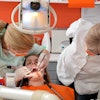
Eight West Virginia community health centers have filed suit in federal court claiming the state's Bureau for Medical Services has mismanaged Medicaid and underpaid them for more than a decade.
In the lawsuit, filed January 26 in U.S. District Court for the Southern District of West Virginia, the plaintiffs ask the court to order the state to immediately begin paying the proper rates as outlined by federal law.
The federally qualified health centers (FQHCs), which treat about 20% of the state's residents and offer both medical and dental services, say the West Virginia Department of Health and Human Resources' Bureau for Medical Services has not properly reimbursed them, creating economic hardship and putting patient care at risk.
“This is about access, not money. It's about patients.”
— Steve Shattls, Valley Health Systems
"This is about access, not money. It's about patients," said Steve Shattls, CEO of Valley Health Systems, one of the plaintiffs. It operates 28 sites in the state, including five dental clinics.
West Virginia has some of the most severe problems of access to dental care for underinsured and uninsured patients in the U.S., Shattls told DrBicuspid.com. "There's absolutely been higher demand for dental services [from these populations]," he noted.
The plaintiffs ask the state to stop imposing arbitrary caps, develop a plan for a new reimbursement system within 45 days, and begin recalculating what the centers should have been paid between 2001 and 2010.
The state has failed during the past 10 years to "follow federal law and even its own state plan for administering Medicaid reimbursement funding," according to the complaint.
Unless they're properly paid, the "plaintiffs run the risk of being forced out of business, leaving their patients and communities without essential health services plaintiffs provide -- all at a time when the current downturn in the economy is leading to an increased demand," the complaint states.
Gary Johnson, CEO of E.A. Hawse Health Center in Baker, another plaintiff, told DrBicuspid.com that his clinic has been forced to increase fees 150% for those who can least afford it.
As FQHCs, they are required to accept Medicare and Medicaid patients and cannot turn anyone away, Shattls noted.
The oral health of the state's population is among the worst in the country, Johnson added. "There's a reason we're usually No. 1 in poor oral health: It's terrible," he said. "It's common to see adults under 35 years old with most of their teeth missing. We see lots of kids 3 to 5 years old with lots of caries and a mouth full of problems. It's nothing for people to travel two hours to get to us," he said.
Because most of the population lives in rural areas, they use well water, and there aren't a lot of fluoridated public water systems, Johnson noted.
The centers have tried in vain to resolve the issue with state administrators, according to Shattls. "We wanted them to see the rules and regulations the way other states see them and the way we believe they should be implemented," he said. "We want the state to recognize what the issues are."
Attorney Edward Waters, who filed the suit, said his firm has successfully litigated similar suits against several other states, including Connecticut, Maryland, and Minnesota, over inadequate Medicaid reimbursement.
"Community health care centers provide an essential piece of primary healthcare, including dental services," Waters told DrBicuspid.com. "They are the safety nets of medical care."
A spokeswoman for the West Virginia Department of Health and Human Resources said the agency does not comment on pending litigation.
The centers' operators say the problem will only worsen as various aspects of the federal healthcare reform law roll out, including the expansion of the Medicaid program, which will increase the number of people who will become eligible.
"There's going to be this huge number of adults and children who will be eligible, and we expect a big influx of patients," Johnson noted.
Copyright © 2011 DrBicuspid.com



















